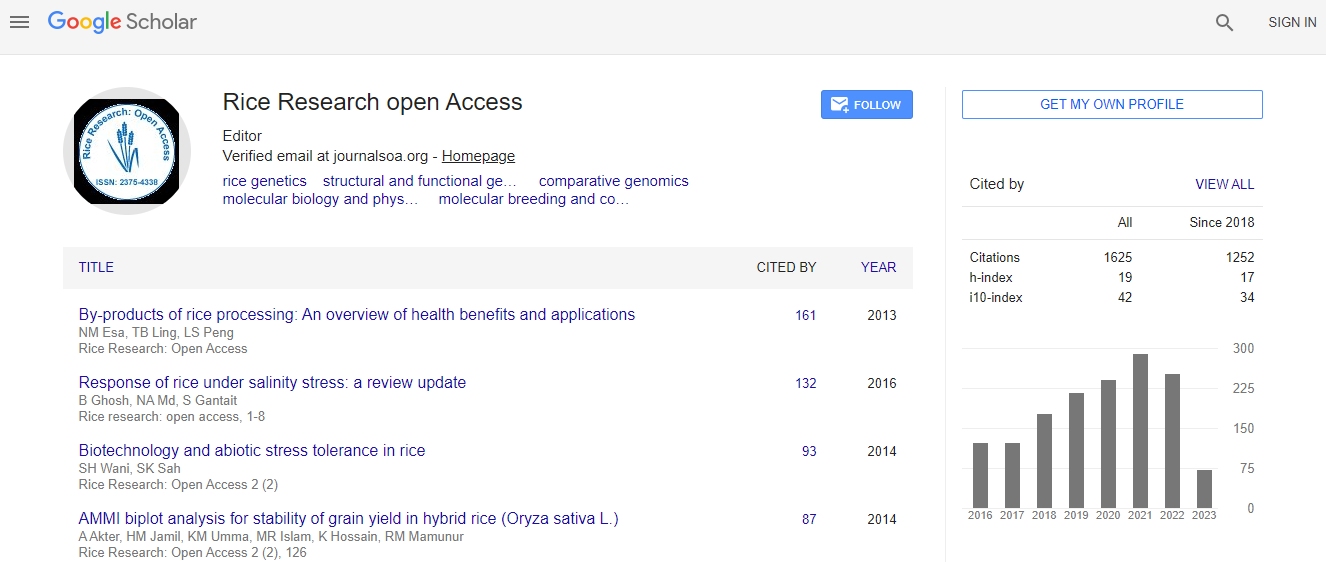Research Article
Bacteria-Soil-Plant Interaction: This Relationship to Generate can Inputs and New Products for the Food Industry
| Jeremias Pakulski Panizzon1,2, Harry Luiz Pilz Júnior1, Neiva Knaak1*, Denize Righetto Ziegler2, Renata Cristina Ramos2 and Lidia Mariana Fiuza1 | |
| 1Microbiology and Toxicology Laboratory; PPG Biology / University Valley River Unisinos Bells, São Leopoldo-RS, Brazil | |
| 2Technological Institute of Food for Health - ITT NUTRIFOR, São Leopoldo-RS, Brazil | |
| *Corresponding Author : | Neiva Knaak Microbiology and Toxicology Laboratory PPG Biology / Universidade do Vale do Rio dos Sinos São Leopoldo -RS- Brazil Tel: +51 9466 787 E-mail: neivaknaak@gmail.com |
| Received: February 01, 2016 Accepted: February 26, 2016 Published: February 29, 2016 | |
| Citation: Panizzon JP, Júnior HLP, Knaak N, Ziegler DR, Ramos RC, et al. (2016) Bacteria-Soil-Plant Interaction: This Relationship to Generate can Inputs and New Products for the Food Industry. J Rice Res 4: 165. doi:10.4172/2375-4338.1000165 | |
| Copyright: © 2016 Panizzon JP, et al. This is an open-access article distributed under the terms of the Creative Commons Attribution License, which permits unrestricted use, distribution, and reproduction in any medium, provided the original author and source are credited. | |
Abstract
A thorough study of microbial communities that inhabit aquatic agro-ecosystems is crucial to a better understanding of what happens in the soil, since these microorganisms play important roles for the maintenance of the habitat. Irrigated rice culture is very common in Brazil. However, the incorrect use of these environments can affect the soil and cause damage. The bacteria-soil-plant interaction has been used in order to support biotechnology, as the rhizosphere possesses a different microbial ecology from the rest of the soil. Microorganisms from this region are directly related to plant growth. Bacterial diversity in soil is extremely diverse, with its population changed rapidly as new nutrients are made available or the existing ones are exhausted. The bacteria that live there receive both the plant nutrients and antimicrobial agents, which are selective and inhibit certain undesirable microorganisms. Aiming at this data, this article has an objective to review existing literature on the interaction between microorganisms and their relationship with the plants, which can be transmitted to food through minerals and/or enzymes, thus enabling the generation of inputs or new products.

 Spanish
Spanish  Chinese
Chinese  Russian
Russian  German
German  French
French  Japanese
Japanese  Portuguese
Portuguese  Hindi
Hindi 
